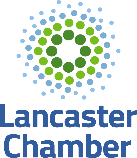Blog

The United States of America has attracted more refugees with a promise of an American Dream, etched in stories and anthems, beckons with the allure of opportunities and success than any other country in the world (Krogstad, 2019). Yet, this dream remains frustratingly out of reach for many talented and qualified refugees. Despite possessing skills and education honed with dedication, they cannot secure suitable jobs, entangled in a complex web of barriers that hinder their integration into the workforce. One of the most significant hurdles is the education gap (Wiseman et al., 2022). Foreign degrees and certifications, symbols of hard work and achievement, often face an arduous and expensive evaluation and recognition process in the American system. This limbo leaves many refugees’ underqualified on paper, their true potential obscured by bureaucracy. Language, too, presents a formidable obstacle. While many refugees’ arrive multilingual, fluency in English remains a key to unlocking doors in the American workplace (Bernstein et al., 2018). Access to high-quality language training programs and opportunities to practice in professional settings can be limited, leaving them struggling to effectively communicate their skills and qualifications. Compounding these challenges is the network disadvantage. Building professional networks is crucial for navigating the job market, yet refugees’ often lack established connections within the American workforce. This absence of a support system makes it difficult to access vital information, recommendations, and opportunities, leaving them at a significant disadvantage compared to their native-born counterparts. Finally, the subtle presence of unconscious bias cannot be ignored. Discrimination based on ethnicity, accent, or cultural background can play a significant role in hiring decisions, subtly tilting the scales against qualified refugees despite their merits. This creates a disheartening experience, where hard work and talent seem less valued than origin and background. The consequences of this underutilization of talent extend far beyond the individual. Studies estimate that refugee’s underemployment costs the American economy billions of dollars annually (Batalova et al., 2016). Their skills and knowledge remain untapped, hindering innovation and economic growth. But the cost isn't just economic. The inability to find suitable employment impacts refugees’ financially, emotionally, and socially (Bernstein et al., 2018). It can lead to feelings of frustration, isolation, and even depression. Unfulfilled potential and unmet expectations can create a sense of disillusionment with the very dream that drew them to America. Moving forward, a multi-pronged approach is necessary to address these challenges. Streamlining the credential evaluation process can remove a significant hurdle for many refugees’. Expanding access to language training programs tailored to professional settings can equip them with the necessary communication skills. Promoting mentorship and networking opportunities can bridge the network gap and offer valuable guidance. Finally, raising awareness about unconscious bias in hiring practices and implementing diversity and inclusion initiatives can create a more level playing field. Embracing the diversity and talent of its refugee’s population is not just a moral imperative for America but also a wise economic decision. By dismantling the barriers they face and creating a more welcoming environment, America can unlock the immense potential within its diverse population and truly live up to the promise of the American Dream. This dream should not remain elusive for those seeking opportunity but rather become a shared reality where talent and contribution are valued, regardless of origin or background. Reference: Batalova, J., Fix, M., & Bachmeier, J. D. (2016). Untapped Talent: The Costs of Brain Waste among Highly Skilled Refugees in the United States. World Education Services. Bernstein, H., & Vilter, C. (2018). Upskilling the immigrant workforce to meet employer demand for skilled workers. Urban Institute. Wiseman, A. W., & Bell, J. C. (2022). Education without evidence: Gaps in data availability for refugee, asylee, and humanitarian migrant students in US schools. Research in Education, 112(1) , 95-108. https://doi.org/10.1177/00345237211034885 Krogstad, J. M. (2019, October 7). Key facts about refugees to the U.S. Pew Research Center . https://www.pewresearch.org/short-reads/2019/10/07/key-facts-about-refugees-to-the-u-s/


